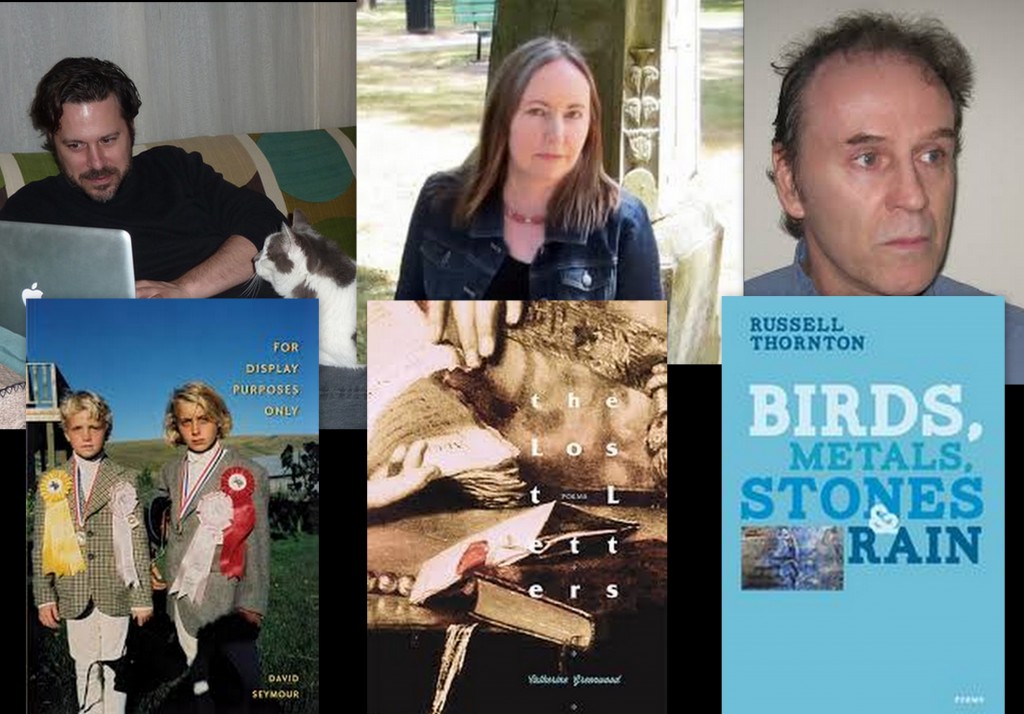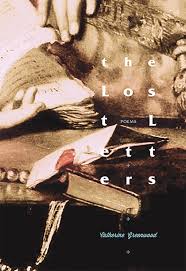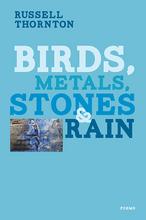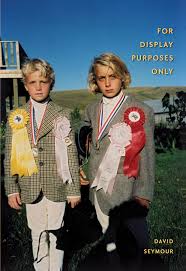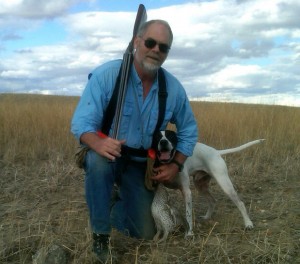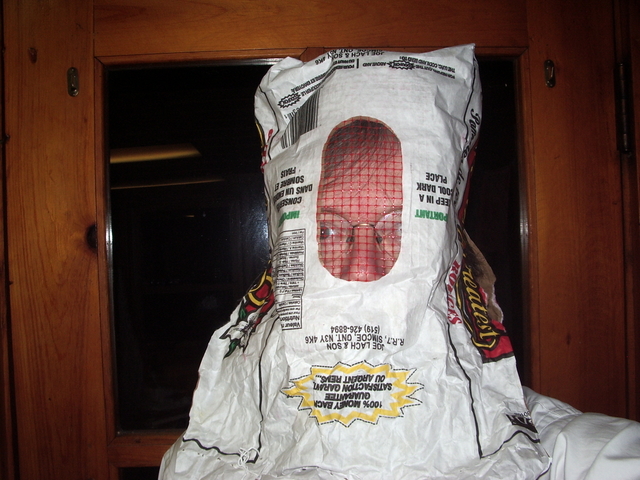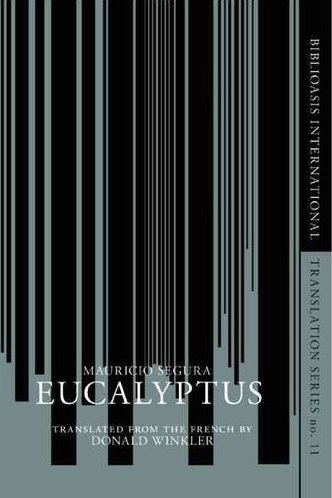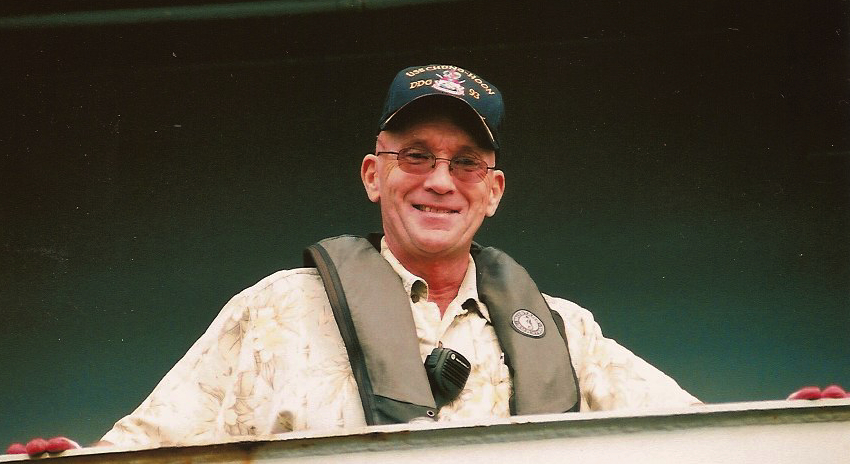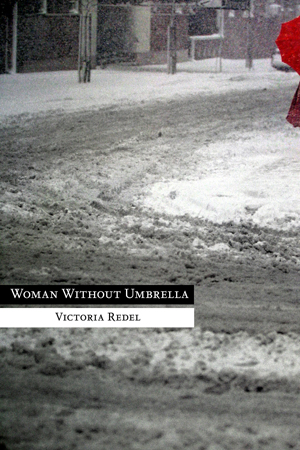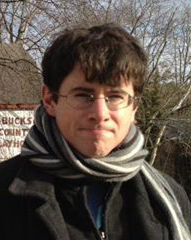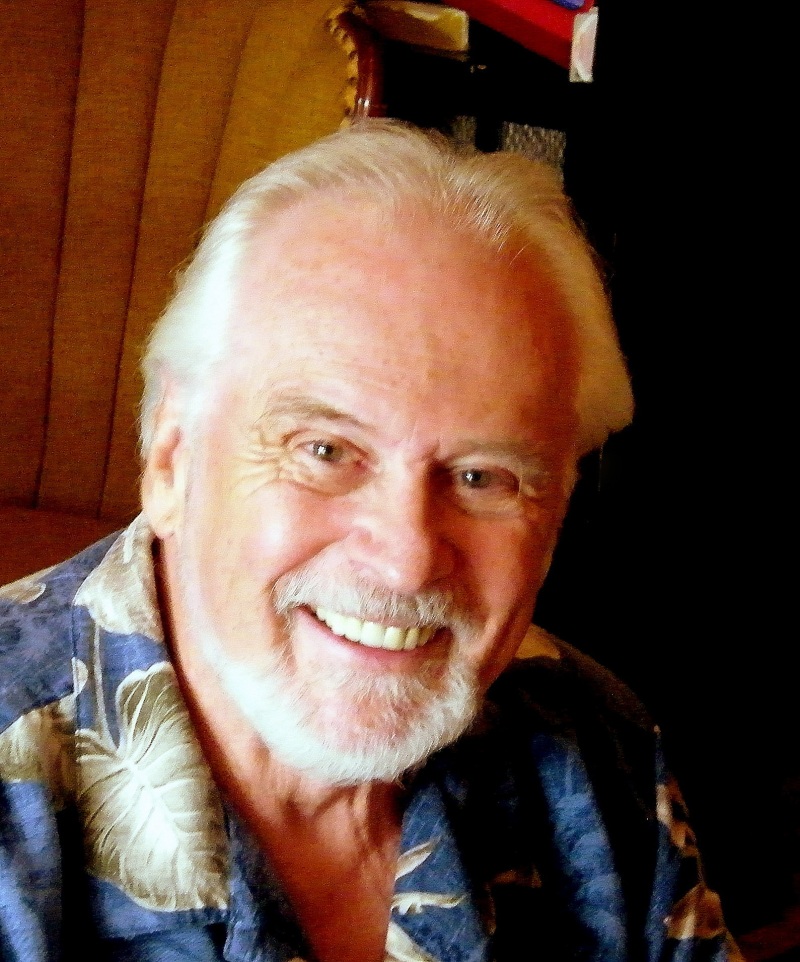
Pat Keane pens here a brilliant essay on Keats, Negative Capability, personality and identity. We humans are a contradictory lot. We yearn for predictability, familiarity, self, home and identity, but, equally, we yearn for vacations, distance, difference and escape from self (falling in love is one of the ways we escape the self). When Keats wrote that famous letter about his friend Dilke wherein he invented Negative Capability, he seemed, yes, to advance the idea that a poet (artist) must leave self, certainty and identity in order to create. But in other works he speaks of “soul-making” as though, rather than losing the self, the poet is creating a self. Pat Keane, vastly erudite (the man is a magician, pulling quotes from his sleeves), does the critic’s job—to make distinctions and find unity—coursing through the letters, digressing on Coleridge and giving a close reading of “Ode to a Nightingale” (among others). This is no dry argument. Keats died young; he wrote in the shadow of his self’s annihilation and yet was “capable of being in uncertainties, Mysteries, doubts, without any irritable reaching after fact & reason” in the pursuit of beauty.
dg
In early November, 2013, Robert Boyers, the founder-editor of Salmagundi (now approaching its 50th anniversary), moderated a conference at Skidmore College on the subject of “Identity.” For two days, a panel of twelve discussed the subject before an audience. Those of us on the panel were given ahead of time an “Anthology of Readings,” full of provocative materials to which, however, we adhered only peripherally since the audience had no access to them. As a sort of preamble to this anthology, Robert provided brief excerpts from Leon Wieseltier’s Against Identity (1996), among which we found this: “Only one in possession of an identity would understand why one would wish to be rid of it.”
Wieseltier was echoing a phrase from the final section of T. S. Eliot’s “Tradition and the Individual Talent.” According to Eliot, the progress of an artist “is a continual self-sacrifice, a continual extinction of personality.” This process of “depersonalization” is further defined toward the end of the essay, where Eliot undermines the “metaphysical theory of the substantial unity of the soul” since “the poet has, not a ‘personality’ to express, but a particular medium, which is only a medium and not a personality.” Just prior to his conclusion in the short coda—that “the emotion of art is impersonal,” and that “the poet cannot reach this impersonality without surrendering himself wholly to the work to be done”—Eliot had ended the essay proper with the observation Wieseltier plays off: “Poetry is not a turning loose of emotion, but an escape from emotion; it is not the expression of personality, but an escape from personality. But, of course, only those who have personality and emotions know what it means to want to escape from these things.”
In the midst of these critical assertions, Eliot had cited Dante, Aeschylus, and a passage from Tournier. But he also referred to the “Ode of Keats,” which “contains a number of feelings which have nothing particular to do with the nightingale, but which the nightingale…served to bring together.” It’s Keats I want to focus on here, ending with that “Ode” to which Eliot refers, and concentrating on what the nightingale “served to bring together” in terms of the poet’s wanting to escape from his “identity,” and finally being tolled back “from thee to my sole self.”

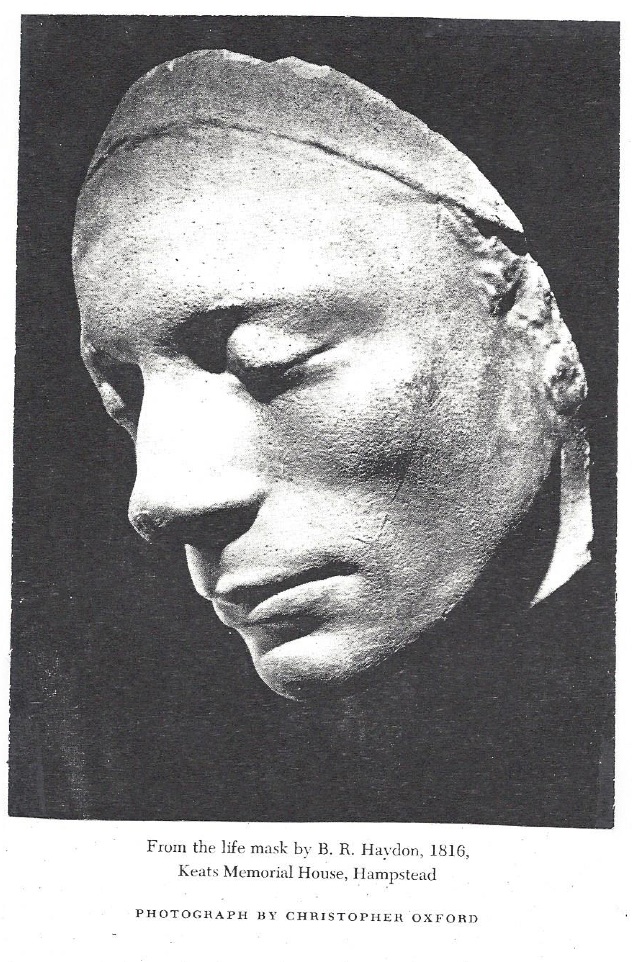
Unlike Eliot, but like Wieseltier, Keats spoke, not of personality, but of “Identity,” sometimes registering the loss of personal identity in the process of what William Hazlitt advocated as the “Natural Disinterestedness of the Human Mind,” the subtitle of his Essay on the Principles of Human Action (1805). Adopting and adapting Hazlitt, Keats engaged in empathetic identification with others, whether persons or things; sometimes celebrating the absence of Identity in a poet; at other times, and finally, embracing it as an ultimate existential achievement.
In an October 27, 1818 letter to his friend Richard Woodhouse, contemplating both the massiveness and the limitations of the power of Wordsworth, Keats distinguishes between the “wordsworthian or egotistical sublime” and his own ideal of “the poetical Character,” that sort “of which, if I am anything, I am a Member.” As conceived by Keats, thinking, as always, of Shakespeare, recalling Hazlitt, and anticipating Eliot, the poetical Character
is not itself—it has no self—it is everything and nothing—It has no character—it enjoys light and shade…It has as much delight in conceiving an Iago as an Imogen. What shocks the virtuous philoso[p]her, delights the c[h]ameleon Poet. It does no harm from its relish of the dark side of things any more than from its taste for the bright one; because they both end in speculation. A Poet is the most unpoetical of anything in existence; because he has no Identity—he is continually in[forming]—and filling some other Body—The Sun, the Moon, the Sea [;] and Men and Women who are creatures of impulse are poetical and have about them an unchangeable attribute—the poet has none; no identity—he is certainly the most unpoetical of all God’s Creatures. (Letters 1:386-87)
Going further, Keats jocoseriously tells Woodhouse that, while it is “a wretched thing to confess,” it is (and here he anticipates the poststructural demystification of the “mistaken” view of the subject as cohesive and self-identical) a “very fact that not one word I ever utter can be taken for granted as an opinion growing out of my identical nature—how can it, when I have no nature?” (Letters 1:387).
This characterless adaptability, this loss of identity, the feeling of being either absorbed in, or “overwhelmed” or “annihilated” by, what is around him, recurs frequently in Keats’s letters and poems. Readers of those remarkable letters are familiar with his self-identifications: flexing his muscles so that he “looked burly,” emulating Spenser’s image of the “sea-shouldering whale”; or becoming the billiard ball rolling across the table; or “if a Sparrow come before my Window, I take part in its existence and pick about the Gravel” (Letters 1:186). There is a particularly touching instance of annihilative empathy: as his younger brother was dying of the same disease that would eventually consume him, Keats felt his own “real self” dissolving in his intense awareness of what Tom was enduring. This capacity is connected with Keats’s “Pleasure Thermometer” passage in Book I of Endymion, and, of course, with his even more famous, influential, and somewhat elusive concept of Negative Capability.
Though it must be measured by the limitations it is encompassed by, the key passage of Book I of Endymion, written in the spring and early summer of 1817, constitutes an answer to the young poet’s question, “Wherein lies happiness?” That answer, couched in poetry occasionally mawkish and marred by the rhyming demands of the couplet-form, nevertheless advances an important theme. Sending along a revision of his initial attempt, Keats, in a letter of 30 January 1818, told his publisher, John Taylor: “I assure you that when I wrote it, it was a regular stepping stone of the Imagination towards a Truth. My having written that Argument will perhaps be the greatest Service to me of anything I ever did—It set before me at once the gradations of Happiness even like a kind of Pleasure Thermometer” (Letters 1:218-19). Answering his own question in the poem, Keats tells us that happiness lies
[space] in that which becks
Our ready minds to fellowship divine,
A fellowship with essence, till we shine
Full alchemized, and free of space.
[space] (Endymion I. 777-79; italics added)
Happiness is measured by its intensity and by our selfless absorption in four ascending gradations of pleasure. The first two involve our sensuous response to natural beauty (exemplified by the tactile feel of a “rose-leaf” on fingers or lips), and to music, from the “sympathetic touch” with which the wind harp “unbinds/ Aeolian magic,” to battle’s “bronze clarions,” to the “lullaby” that occurs wherever “infant Orpheus slept” (777-94). “Feel we these things?” Keats asks rhetorically; if so,
That moment have we stepped
Into a sort of oneness, and our state [an unrhymed line]
Is like a floating spirit’s. But there are
Richer entanglements, enthrallments far
More self-destroying, leading, by degrees,
To the chief intensity: the crown of these
Is made of love and friendship….(795-804; italics added)
He would later tell Fanny Brawne, “You absorb me in spite of myself” (Letters 2:133). In “love,” this self-annihilating absorption in beauty is so intense that, having “stepped/ Into a sort of oneness,” we melt into that “orbéd drop/ Of light” at the pinnacle of experience.
Melting into its radiance, we blend,
Mingle, and so become a part of it—
Nor with aught else can our souls interknit
So wingedly. When we combine wherewith,
Life’s self is nourished by its proper pith,
And we are nourished like a pelican brood.
(804-5, 810-15; italics added)
In legend and Christian symbolism, the pelican wounds herself to nourish her brood with her own blood. The lover sacrifices selfhood in order to attain unity, or (if one is persuaded by an Idealist or Neoplatonic reading), in order to re-attain a lost Unity. Similarly, lovers of beauty—“full alchemized” and in “fellowship with essence”—become so absorbed in the “thing of beauty” they contemplate that they melt into the object of their love. The crucial point in the passage as a whole is Keats’s emphasis on entanglements and enthrallments that are “self-destroying.” The “sense of beauty” overcoming and obliterating every other consideration is also the crucial aesthetic point of Keats’s speculations regarding Negative Capability.

In a December 1817 letter to his brothers George and Tom, Keats reports “not a dispute but a disquisition” with their mutual friend Charles Dilke:
several things dovetailed in my mind, & at once it struck me, what quality went to form a Man of Achievement especially in Literature & which Shakespeare possessed so enormously—I mean Negative Capability, that is when a man is capable of being in uncertainties, Mysteries, doubts, without any irritable reaching after fact & reason—Coleridge, for instance, would let go by a fine isolated verisimilitude caught from the Penetralium of mystery, from being incapable of remaining content with half knowledge. This pursued through Volumes would perhaps take us no further than this, that with a great poet the sense of Beauty overcomes every other consideration, or rather obliterates all consideration. (Letters 1:193-94)
Keats was wrong to cite as a counter-example Coleridge—whose system-building was forever being thwarted by his inability to “let go by” the many “isolated verisimilitudes” that became, at worst, digressions and, at best, intuitive insights that imported German Idealism to England and, in the process—as demonstrated in my own Emerson, Romanticism, and Intuitive Reason (2007) and Samantha Harvey’s Transatlantic Transcendentalism (2013)—transformed both British Romanticism and American Transcendentalism. Furthermore, Coleridge’s “Dynamic Philosophy” may, in the present context, help explain the apparent contradiction between Keats’s emphasis on the chameleon poet possessing “no Identity” and, in the “vale of Soul-making” analogy, the imperative to acquire an Identity. Keats’s “disquisition” with Dilke may call to mind, for us, if not for Keats, a seminal passage in Biographia Literaria, beginning with the assertion that “The office of philosophic disquisition consists in just distinction” (Coleridge’s italics). But, Coleridge continues, the philosopher must remain
constantly aware, that distinction is not division. In order to obtain adequate notions of any truth, we must intellectually separate its distinguishable parts; and this is the technical process of philosophy. But having so done, we must then restore them in our conception to the unity, in which they actually co-exist; and this is the result of philosophy. (Biographia Literaria 2:11)
In Coleridge’s thought, based on Polarity and the harmonizing power of Intuitive Reason, ultimate unity emerges from, and depends on, the dialectical tension between opposites. Once we have set out, he says, “these two different kinds of force,” it remains for us “to elevate the Thesis,” by “contemplating intuitively this one power” combining “two…counteracting forces,” with their dynamic “interpenetration” achieved “in the process of our own self-consciousness” (Biographia Literaria 1:299). “Thus,” he remarks in a letter, “the two great Laws…of Nature would be Identity or the Law of the Ground: and Identity in the difference, or Polarity=the Manifestation of unity by opposites.” The final, if hypothetical, synthesis would be “the re-union with Nature as the apex of Individualization—the birth of the Soul, the Ego or conscious Self, into the Spirit” (Collected Letters 4:807).
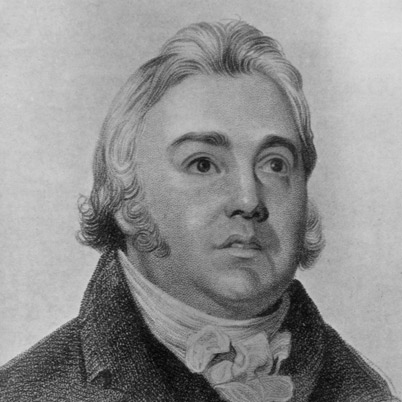
Though that final phrase may remind us of the “vale of Soul-making,” Coleridge’s conception, no less hypothetical and dialectical than Keats’s, was, unlike Keats’s, theological. In the Biographia, a dozen pages prior to the “interpenetration” attained “in the process of our own self-consciousness,” Coleridge made Identity ultimately equivalent to the divine I AM of scripture: “We begin with the I KNOW MYSELF, in order to end with the absolute I AM. We proceed from the SELF, in order to lose and find all self in GOD” (1:282-83). That lost-and-found process would entail metaphysical self-annihilation, Negative Capability in extremis. Though I occasionally feel the spiritual pull in his poetry and letters, I cannot bring myself to read Keats, even in Endymion let alone the Odes, from a religious or Neoplatonic perspective. What has interested me enough to engage in this “Coleridgean” digression is Coleridge’s dual, apparently contradictory, use of the term “Identity,” and the potential of his Dynamic Philosophy, with its polar fusion of opposites, to help us examine and perhaps reconcile Keats’s two apparently contradictory perspectives on Identity.
To return to the letter on Negative Capability: whatever his misjudgment of Coleridge’s “method” and cognitive processes, these thoughts on Negative Capability codify Keats’s own imperative in engaging a world of “uncertainties” impervious to systemic and total explanation. Since we can rarely get beyond half-knowledge, what is called for, especially in a poet, is a mental and imaginative openness and receptivity. Adumbrating the Shakespearean “quiet power” he finally and fully attained in the ode “To Autumn,” Keats wrote his friend John Hamilton Reynolds on 18 February 1818: “Now it is more noble to sit like Jove tha[n] to fly like Mercury—let us not therefore go hurrying about and collecting honey-bee-like, buzzing here and there impatiently from a knowledge of what is to be arrived at; but let us open our leaves like a flower and be passive and receptive—budding patiently under the eye of Apollo, and taking hints from every noble insect that favors us with a visit” (Letters 1:232-33).
Such hints should be accepted gratefully, not least because they are creatively productive (As Blake put it, using “Keatsian” imagery: “The thankful receiver bears a plentiful harvest.”) To irritably reject them because they cannot be fitted into a larger scheme—“knowledge of what is to be arrived at,” a system of one’s own making—amounts to an egoistic assertion and projection of one’s own identity. Of Dilke, “disquisition” with whom launched these thoughts, Keats later said he “was a Man who cannot feel he has a personal identity unless he has made up his mind about every thing. The only means of strengthening one’s intellect is to make up one’s mind about nothing—to let the mind be a thoroughfare for all thoughts…Dilke will never come at a truth as long as he lives; because he is always trying at it.” (Letters 2:213).

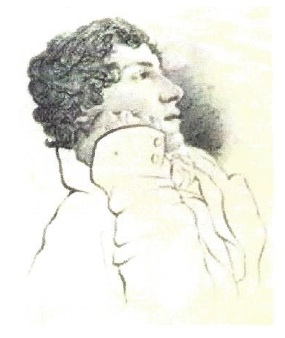 Pencil Sketch by Charles Brown, 1819
Pencil Sketch by Charles Brown, 1819
Reading Hazlitt’s Essay on the Principles of Human Action, Keats learned to see “identity” as a limitation of a prior anonymous subjectivity and receptivity. Cancellation of the ego enhances concern for others, a disinterestedness leading to empathy. But Keats could think of almost no one, other than Socrates and Jesus, who had attained such disinterestedness. The Self and Identity were not so easily jettisoned. Along with Hazlitt’s Essay, it seems likely that Keats also read John Locke’s chapter on “Identity and Diversity” in An Essay Concerning Human Understanding, a volume we know he owned (Keats Circle 1:255). In Book II, Chapter 27, Locke argues that “personal identity” requires “psychological continuity,” an unchanging and unique sameness produced by consciousness and memory. “For it is by the consciousness” an intelligent being “has of its present thoughts and actions, that it is self to itself now, and so will be the same self, as far as the same consciousness can extend to actions past and to come” (sect. 10, p. 451; Locke’s italics). What “preserves” a person “as the same individual,” he concludes the chapter, “is the same existence continued” (sect. 28, p.470; Locke’s italics). In his essay “On Personal Character,” published in March 1821, within weeks of Keats’s death, a now deterministic Hazlitt insisted that “No one ever changes his character from the time he is two years old; nay I might say, from the time he is two hours old….The character, the internal, original bias, remains always the same, true to itself to the very last” (Hazlitt, Complete Works, 16:23-34). By the spring of 1819—reflecting what Hyder Rollins, the editor of Keats’s letters, surmises was his reading of Chapter 27 of Locke (Letters 2:102n)—Keats would posit an identity unique to each person’s “individual existence.” But unlike Locke and, especially, Hazlitt, Keats did not see the self as unchanging and unaltered by experience. Instead he believed, in Aileen Ward’s formulation, in a “gradually developing sense of self which emerges as the individual matures, in reaction to the crises of his emotional experience and from imaginative interaction or identification with the identities of others” (John Keats: The Making of a Poet, 419n14).
The movement from one provisional ideal, that of the poet who “has no Identity,” to its polar opposite, the painful creation of an Identity forged in the experiential crucible of the world, is a Polarity that may be illuminated, as earlier suggested, by Coleridge’s emphasis on opposites requiring a creative act to transform and reconcile them: a reconciliation always potential since “distinction is not division.” Those unfamiliar with Coleridge’s emphasis on bipolar unity may think of the process in terms of Hegelian or Blakean dialectic. One or the other seems to be in the background of Stuart Sperry’s apt synopsis: if in his “expansion of the Negative Capability formulation,” Keats “envisioned poetry as an escape from or transcendence of the limits of identity, it was all the more necessary to see it as the discovery or creation of identity at a level that was more profound” (Keats the Poet, 151). The development—reminiscent of Blake’s dialectical movement from Innocence through Experience to a Higher or “organiz’d Innocence”—culminates in the analogy Keats worked out in the spring of 1819, tracing the development of the formless “intelligence” we possess at birth into a coherent “Identity.”
In the most celebrated pages of the journal-letter to his brother and sister-in-law in America, Keats rejected as “narrow and straitened” the Christian notion of “the world…as ‘a vale of tears’ from which we are to be redeemed by a certain arbitrary interposition of God and taken to Heaven.” Instead, Keats, a religious skeptic, hypothesized the existence of a soul, not because he believed the soul to have ontological status, but in order to advance his own scheme of salvation. He proposes an immanent process of “spirit-creation,” in which our experience of earthly life itself, however painful, is its own reward. “Call the world if you Please, ‘the vale of Soul-making’[.] Then you will find out the use of the world….Do you not see how necessary a World of Pains and troubles is to school an Intelligence and make it a soul? A Place where the heart must feel and suffer in a thousand diverse ways!” These intelligences do not become souls “till they acquire identities, till each one is personally itself,” possessing a “bliss peculiar to each one’s individual existence.” What, he asks, summing up his speculations, was a man’s formless soul before it came into the world and was altered and fortified: “An Intelligence—without Identity—and how is this Identity to be made? Through the Medium of the Heart? And how is the heart to become this Medium but in a world of Circumstances?” (Letters 2:102-4).
Here, Keats’s earlier sense of, even occasional longing for, self-annihilation—Wieseltier’s “wish to be rid of” an Identity, Eliot’s “extinction” of, or “escape” from, personality—is retracted, replaced by an existential, Wordsworthian, even proto-Nietzschean insistence on the crucial need to face harsh, often unregenerate reality, and a positive emphasis on the acquisition of personal Identity, shaped by experiencing a world of difficulty and suffering. The process is creative rather than destructive, a rejection of both Christian and Platonic Otherworldy soul-making, a vision of tragic humanism that is finally an affirmation.
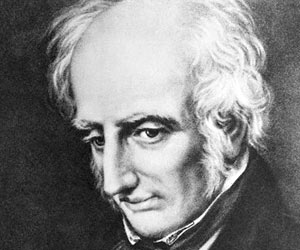
It is also Romantic in its fusion of Mind and Heart. This is precisely what Wordsworth had done in the final two stanzas of the “Ode: Intimations of Immortality from Recollections of Early Childhood.” To the penultimate stanza’s emphasis on “thought” and the “years that bring the philosophic mind”—a “necessary” development endorsed by Keats, citing the Ode (Letters 1:186)—Wordsworth added that, even though “the radiance which was once so bright/ Be now for ever taken from my sight,” he still felt the power of nature “in my heart of hearts”:
Thanks to the human heart by which we live,
Thanks to its tenderness, its joys, and fears,
To me the meanest flower that blows can give
Thoughts that do often lie too deep for tears. (200-203)
The Ode ends with “tears,” but they are unshed since the “thoughts” evoked by that simple flower are “too deep” for tears. In an earlier letter, to John Hamilton Reynolds on 3 May 1818, Keats says that Wordsworth identifies “the human heart” as “the main region of his song” (Letters 1:279). Keats is misremembering the lines from the “Prospectus” to The Recluse, where Wordsworth identifies “the Mind of Man” as “My haunt, and the main region of my song” (40-41), because he is reading them through the prism of the final lines of the Ode, in which Wordsworth offers praise and thanks “to the human heart by which we live.”
Keats’s own fusions of Mind and Heart are rather more sensuous. He could not have known of the letter of Coleridge I earlier cited in connection with Keats’s own “vale of Soul-making” letter, where, in describing the fusion of two forms of “Identity,” Coleridge personified Polarity as “Male and female of the World of Time, in whose wooings and retirings and nuptial conciliations all other marriages…are celebrated inclusively” (Collected Letters 4:807). But Keats did know, intimately, Wordsworth’s “Prospectus” to The Recluse, which he echoes in the “Ode to Psyche,” where the fusion takes erotic even “nuptial” form in the finale. Keats, who will “build a fane/ In some untrodden region of my mind,” is remembering as well Wordsworth’s “temple in the hearts/ Of mighty Poets” (“Prospectus,” 40-41, 85-86). Echoing in order to alter the Greek myth, Keats, as the goddess’s priest and self-inspired prophet, brings Psyche and Eros together in that heart- and mind-forged temple he has made for her. In one of the most touching of all the many Romantic reconciliations of mind and heart, the poet as devotee of the forlorn goddess replaces the myth’s fatal “lamp,” whose dripping wax awakened the god and drove him away, with “A bright torch, and a casement ope at night,/ To let the warm Love in.”
In the most strikingly “Keatsian” image in the “vale of Soul-making” passage, the Heart is described as “the Mind’s Bible, it is the Mind’s experience, it is the teat from which the Mind or intelligence sucks its identity” (Letters 2:103; italics added). To adapt John Donne, one might almost say of Keats that his body thought. One conclusion is palpable. From his own struggle with a world of painful circumstances, Keats would emerge at last, heart and mind altered and fortified, and in possession of what he had earlier criticized or resisted and what, in any case, had so long eluded him: a strong sense of his own personal Identity. The thinking and feeling Heart having become a “Medium” in the experiential crucible of a “world of Pains and troubles,” the chameleon poet of “no Identity” emerges from the soul-making process with an identifiable Self.

This same trajectory can be traced, mutatis mutandis, in what Eliot called “the Ode of Keats,” especially when it is placed in the context of Keats’s development up to that point—the same spring of 1819 when he wrote the journal-letter we have been examining. The “Ode to a Nightingale” is generally, or at least most often, read as a poem of Romantic escape from the self or identity (a “wish to be rid of it,” in Wieseltier’s phrase), however induced. In the most controversial, and reductive, surmise in his fact-filled new biography, Nicholas Roe reads the Ode as Keats’s “Kubla Khan,” laudanum being the “dull opiate” mentioned three lines into the opening stanza:
My heart aches, and a drowsy numbness pains
[space] My sense, as though of hemlock I had drunk,
Or emptied some dull opiate to the drains
[space] One minute past, and Lethe-wards had sunk.
The heartache and paradoxically painful numbness are a response to the “happy lot” the speaker attributes to the singer hidden in the foliage, a response intensely empathetic rather than pettily envious:
‘Tis not through envy of thy happy lot,
[space] But being too happy in thine happiness—
[space] [space] That thou, light-wingéd Dryad of the trees,
[space] [space] [space] In some melodious plot
[space] Of beechen green, and shadows numberless,
[space] [space] Singest of summer in full-throated ease.
“The Ode to a Nightingale” is, Roe asserts, “one of the greatest re-creations of a drug-induced dream-vision in English literature” (John Keats, 324). I take the Keatsian caveats seriously; the speaker says he feels “as though” he had drunk hemlock or “emptied” a dulling “opiate to the drains,” and goes on to reject not only poison and drugs but a milder and more enticing intoxicant: that “beaker full of the warm South,/ Full of the true, the blushful Hippocrene,/ With beaded bubbles winking at the brim.” There is ample reason to want to escape human “weariness, the fever, and the fret,” Keats’s restless fricatives recalling Wordsworth’s solace in nature from “the fretful stir/ Unprofitable, and the fever of the world” (“Tintern Abbey,” 52-53), itself recalling death-contemplating Hamlet’s cry, “How weary, stale, flat, and unprofitable/ Seem to me all the uses of this world!” (1.2.133-34). In any case, like the opiate, the wine is rejected as a vehicle to join the nightingale: “Away! Away! For I will fly to thee,/ Not charioted by Bacchus and his pards,/ But on the viewless wings of Poesy.” The dream-vision—escapist, imaginative, or both—is poetically induced and articulated. And, as has been said by Paul Valéry, great poet as well as great critic, “It is the very one who writes down his dream who is obliged to be extremely wide awake” (“Concerning Adonis,” in The Art of Poetry 11-12).
Echoing Hamlet’s desire, in this same opening soliloquy, “that this too, too solid flesh would melt,/ Thaw, and resolve itself into a dew,” Keats wants to “fade far away, dissolve and quite forget” the world of mutability. Though the “dull brain perplexes and retards,” he will join the nightingale on those “viewless wings of Poesy”: the very word summoning up Keats’s earlier, Spenserian poetry of voluptuous refuge from selfhood and the world of circumstances. “Oh, for ten years,” he had cried out in “Sleep and Poetry” (1816), “that I may overwhelm/ Myself in poesy.” Even there he had anticipated three stages, a journey through the sleepy realm of “Flora and old Pan,” and an erotic paradise of natural repose, until “these joys” are bade “farewell.” For the poet, inspired by a vision of his presiding deity, charioted Apollo, knows that “I must pass them for a nobler life,/ Where I may find the agonies, the strife/ Of human hearts” (90-91, 101-2, 122-25; italics added).
In lines that anticipate the disenchantment of the final stanza of the “Ode to a Nightingale,” Keats is torn between the real and the ideal, struggling to retain, despite the gravitational pull of reality, the memory of this vision of Apollo in his chariot, a vision he skeptically doubts, yet vows to keep alive:
The visions all are fled—the car is fled
Into the light of heaven, and in their stead
A sense of real things comes doubly strong,
And, like a muddy stream, would bear along
My soul to nothingness. But I will strive
Against all doubtings and will keep alive
The thought of that same chariot… (155-61; italics added)
The threat in the Nightingale Ode will come from “the fancy” and (closely related if not identical) the beautiful yet deceptive siren-song of that “light-wingéd Dryad of the trees,/ In some melodious plot.” In “Sleep and Poetry,” the self is threatened with annihilation by a doubled (because post-visionary) sense of the trammels of phenomenal reality: a “muddy stream” reminding us again of Hamlet, this time of drowned Ophelia, whose “garments, heavy with their drink,/ Pulled [her] from her melodious lay/ To muddy death.” These antithetical pulls persist. For Keats, who will cry out later in this poem, “If I do hide myself, it sure shall be/ In the very fane, the light of Poesy” (275-76), is not yet ready for the full burden of the Apollonian vision: the need to engage with full consciousness that “nobler life” where he may find “the agonies, the strife/ Of human hearts.”
Two years later, in January 1818, in the pivotal sonnet “On Sitting Down to Read King Lear Once Again,” he will turn from Spenser to Shakespeare, from that “Siren” and “Queen of far-away,” Spenserian “golden-tongued Romance,” to engage, “once again”—in the process of re-reading Shakespeare’s deepest tragedy—“the fierce dispute/ Betwixt damnation and impassioned clay.” Once again “Must I burn through, once more humbly assay/ The bitter-sweet of this Shakespearean fruit.” By vicariously experiencing the agony of Lear, “bound upon a wheel of fire,” Keats comes to that deeper understanding of human life he adumbrated in “Sleep and Poetry.” He also anticipates emerging from the fire, reborn as a poet of self-knowledge and tragic affirmation: “Let me not wander in a barren dream,/ But, when I am consuméd in the fire,/ Give me new phoenix wings to fly at my desire.” The Lear sonnet’s advance from barren dream to tragic reality and self-knowledge extends to form and meter. Though the octave was Petrarchan, its sestet is Shakespearean, and that final line hyper-metrically enacts the poet’s liberation, its Alexandrine breaking the cage of the pentameter.
All of these stages are re-enacted in the “Ode to a Nightingale.” The opulent beauty of the Ode seems Spenserian, never more so than when, on the “viewless wings of Poesy,/ Though the dull brain perplexes and retards,” the poet suddenly (“Already with thee!”) joins the nightingale in her bower-world of “verdurous glooms and winding mossy ways,” from which mid-region, since “here there is no light,” he guesses at heaven: “Tender is the night,/ And haply [perhaps] the Queen-Moon is on her throne,/ Clustered around by all her starry fays.” In the exquisite fifth stanza, the poet guesses at earth. In “embalméd darkness,” he “cannot see what flowers are at my feet,/ Nor what soft incense hangs upon the boughs,” and so must “guess each sweet/ Wherewith the seasonable month endows” the floral and arboreal world around him. But if the absence of sight liberates the imagination, even the flowers guessed at introduce more than organic fertility and growth. Echoing Oberon’s description of Titania’s bower in Act 2, scene 1 of A Midsummer Night’s Dream (where “the nodding violet grows,” over-canopied “With sweet muske roses and with Eglantine”), Keats’s bower-litany (“the grass, the thicket, and the fruit-tree wild,/ White hawthorn and the pastoral eglantine”) ends with
Fast-fading violets covered up in leaves;
[space][space] And mid-May’s eldest child,
The coming musk-rose, full of dewy wine,
[space] The murmurous haunt of flies on summer eves.
Shakespeare’s violet “grows”; Keats’s “fast-fading” violets, the “coming” musk-rose, the projected flies of summer all evoke process, cyclical change, death. The violets’ rapid “fading” recalls, too, the poet’s desire to join the nightingale, wholly integrated into its floral and leafy world and blissfully unconscious of transience and death. Back in stanza 2, the speaker wanted a wine charged with all the joys of earth, “Tasting of Flora and the country green,/ Dance, and Provencal song, and sunburnt mirth,” in order, paradoxically, that he “might drink, and leave the world unseen,/ And with thee fade away into the forest dim.” He longed to “Fade far way, dissolve and quite forget/ What thou among the leaves hast never known”: the world of human fading—where, with Tom behind the abstraction, “youth grows pale, and spectre-thin, and dies;/ Where but to think is to be full of sorrow.” But with the turn into the sixth stanza, he must think, even though the stanza, until the abrupt turn in the final two lines, involves the ultimate dissolution and fading: the dream of escape from a death-haunted world through death itself.
The stanza begins, “Darkling, I listen,” for, along with the murmur of the rose-bosomed flies, Keats hears (as Thomas Hardy later would in “The Darkling Thrush”) the “nocturnal note” of Milton’s nightingale, that “wakeful Bird,” who “Sings darkling and in shadiest Covert hid” (Paradise Lost 3:38-40, marked by Keats in his copy of Milton).
Darkling, I listen; and, for many a time
[space] I have been half in love with easeful Death,
Called him soft names in many a muséd rhyme,
[space] [space] To take into the air my quiet breath;
Now more than ever seems it rich to die,
[space] [space] To cease upon the midnight with no pain,
[space] [space] [space] While thou art pouring forth thy soul abroad
[space] [space] [space] [space] In such an ecstasy….
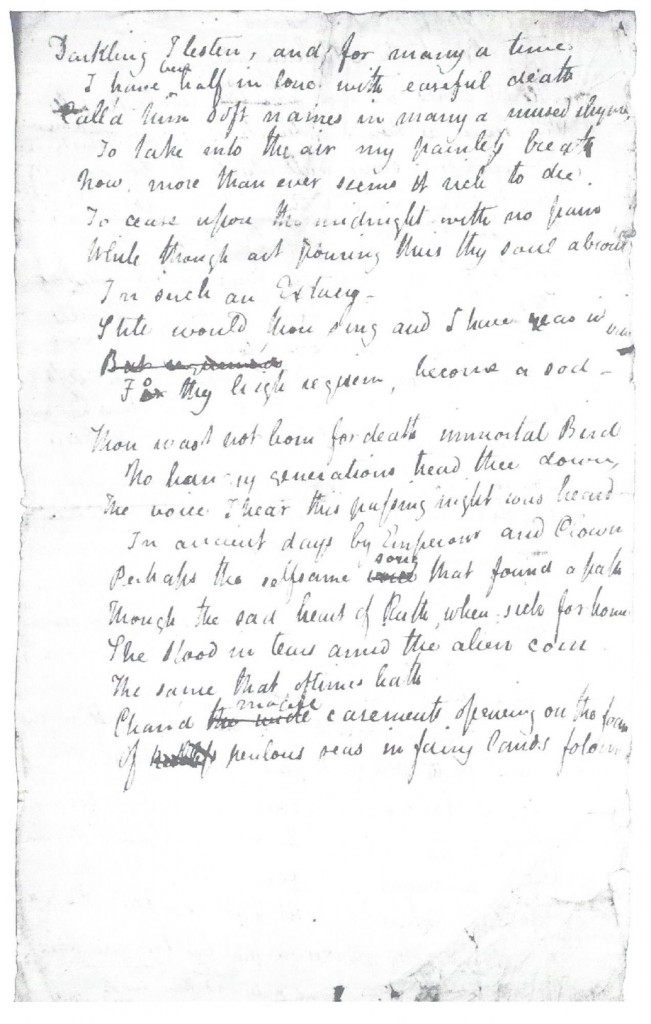
With the nightingale pouring forth her own soul, still singing, precisely at midnight, of summer “in full-throated ease,” that half-loved “easeful Death” seems a consummation devoutly to be wished, a fulfillment of the old prayer that, intoxicated “by the breath/ Of flowering bays,…I may die a death/ Of luxury and my young spirit” come “to the great Apollo/ Like a fresh sacrifice” (“Sleep and Poetry,” 57-61). But in the Ode, Keats is only “half in love” with that prospect, and though he has called on Death in “many” a rhyme to “take into the air my quiet breath,” and it now appears “more than ever” a luxury, he has a second caveat: “Now more than ever seems it rich to die.” For Keats’s long-entertained death wish, his voluptuous morbidity, is here countered by his even stronger, quenchless vitality (“full” is repeated twice more in the second stanza). Having half-embraced a “midnight” death, Keats recoils, realizing the actual consequence: “Still wouldst thou sing, and I have ears in vain—/ To thy high requiem become a sod.” Actual death, not the “easeful Death” of his erotic-aesthetic fantasy, far from being “rich,” would impoverish the listener, reduced to insensate oblivion. The nightingale’s song, an outpouring from her own selfhood inviting the poet to join her in a similarly self-transcending ecstasy, has now become a “high requiem” to which he is deaf. The bird would continue to sing; he would hear nothing. The trance has ended.
The two lines anticipate a truth registered in Keats’s heartbreaking letter, written on 30 September 1820 from Yarmouth, off the Isle of Wight. Aboard the ship on which he was making his final journey, Keats, aware that he was beyond recovery, was haunted by the image of Fanny. “The thought of leaving Miss Brawne is beyond every thing horrible—the sense of darkness coming over me—I eternally see her figure eternally vanishing.” He tells his friend Brown, “I wish for death every day and night to deliver me from these pains, and then I wish death away, for death would destroy even those pains which are better than nothing. Land and Sea, weakness and decline[,] are great separators, but death is the great divorcer for ever” (Letters 2:345).

With the realization, at this late turning-point of the Ode, that death, far from being the portal to union with the nightingale, would be the great divorcer forever, an unbridgeable breach opens between mortal poet and immortal bird. Precisely what had made its “happy lot” so desirable, singing “of summer in full-throated ease” because it had no consciousness of seasonal change and death, now becomes a painful contrast not just emotional but existential: “Thou wast not born for death, immortal Bird!/ No hungry generations tread thee down,” as they tread down those all-too-aware that they are “born for death.” The voice the poet hears on this particular evening was heard “in ancient days” by high and low, by “emperor and clown.” Revealingly, the nightingale’s song introduces in this, the penultimate stanza, the “forlorn” note with which the final stanza will open. The poet attributes both immortality and identity to that song, though he registers (“Perhaps”) a characteristically skeptical note at the outset of the sinuously beautiful lines that follow. The song the poet, a transient mortal, hears “this passing night,” is
Perhaps the self-same song that found a path
[space] Through the sad heart of Ruth, when, sick for home,
[space] [space] She stood in tears amid the alien corn;
[space] [space] [space] The same that oft-times hath
[space] Charmed magic casements, opening on the foam
[space] [space] Of perilous seas, in faery lands forlorn.
However permanent (“Still wouldst thou sing…”) and identical through the ages, his immortalized Bird’s “self-same song” has different listeners, and the final tonality is forlorn.
Forlorn! The very word is like a bell
[space] To toll me back from thee to my sole self!
Adieu! The fancy cannot cheat so well
[space] As she is famed to do, deceiving elf.
Adieu! Adieu! Thy plaintive anthem fades
[space] Past the near meadows, over the still stream,
[space] [space] Up the hill-side; and now ‘tis buried deep
[space] [space] [space] In the next valley-glades….
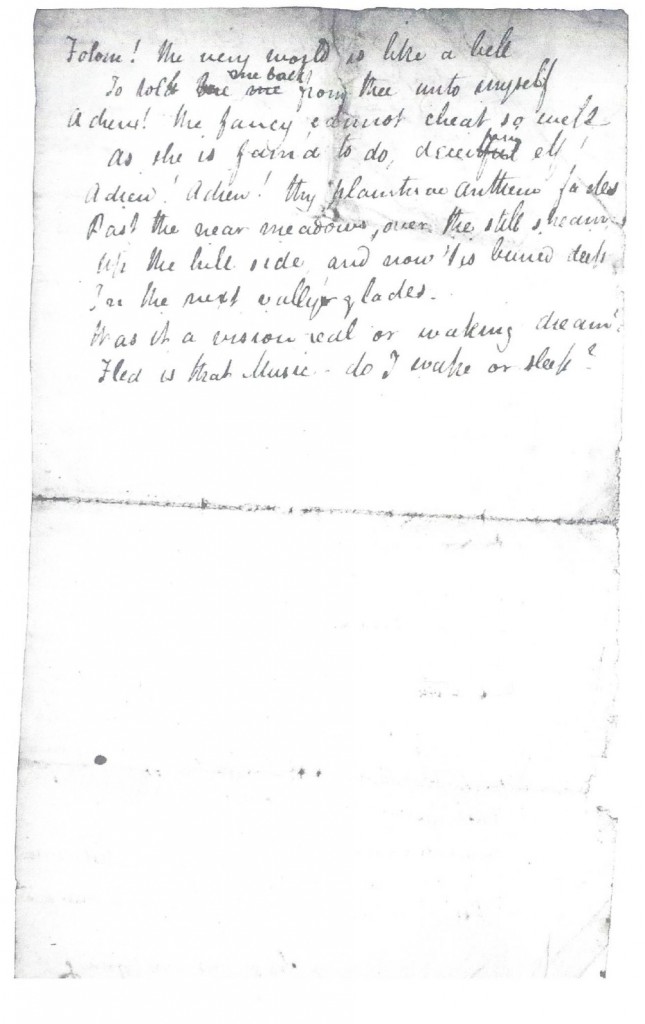
Like the “fast-fading violets, covered up in leaves,” the music of the nightingale, which had seduced the poet into longing to “fade far away, dissolve,” and forget the world of transience and death, now itself becomes a “plaintive anthem” that “fades/ Past the near meadows,” over the stream, up the hill-side; “and now ‘tis buried deep/ In the next valley-glades.” As in the crucial sixth stanza, the final two lines of the concluding stanza mark a turn, this time in the form of a double-question: “Was it a vision, or a waking dream?/ Fled is that music:—Do I wake or sleep?” The only thing certain is that, like the visionary chariot of Apollo in “Sleep and Poetry,” the music has “Fled.” If the fading and burial of the bird’s song recall Wordsworth’s “something that is gone,” in stanza 4 of the Intimations Ode, Keats’s final double-question more certainly evokes the double-question with which Wordsworth ended that stanza (for two years his final stanza): “Whither is fled the visionary gleam?/ Where is it now, the glory and the dream?”
Like Wordsworth at that point of his unfinished Ode, Keats is at a loss. “Nothing is got for nothing,” Emerson reminds us, and the ending of the “Ode to a Nightingale” is as poignant as it is perplexed. The speaker—embodying Negative Capability, “being in uncertainties, Mysteries, doubts”—is left wondering, as are we. Was his response to the song of the nightingale “a vision real” (as he initially wrote, and, significantly, cancelled)? Or, however glorious, was it a mere waking dream? Was he then truly awake and now in a state of sleep and torpor inferior to imaginative Reality? Or was he merely entranced then, and now once again awake to the reality of human life, however changed he has been by the intervening imaginative experience?
As in the ode it precedes, that on the Grecian Urn, the “Ode to a Nightingale” is based on antithetical pulls: between attraction to ideal beauty, authentic or escapist, and a skeptical, gravitational attraction to the truth, or the illusion, of earthly reality. In the later Ode, the Urn, speaking belatedly (and, for many readers, problematically, even notoriously) reconciles the antitheses, achieving in oracular utterance—“‘Beauty is truth, truth beauty,’—that is all/ Ye know on earth, and all ye need to know’”—what Keats struggled with, in terms of “sensation” and “knowledge,” feeling and thinking, “beauty” and “truth,” as well as in terms of his differing perspectives on Identity. Indeed, the Delphic Urn asserts what Coleridge was laboring all his life to find through philosophy: that elusive bipolar unity. Of course, the Urn speaks (including, as I read and hear the lines, both the Beauty/Truth equation and the sweepingly un-Keatsian generalization) sub specie aeternitatis, a perspective which is, paradoxically, limited. The equation, true within the urn-world, seems, at best, unconvincing in our own “world of Pains and troubles.” But debate persists; it all depends on how we interpret the variously punctuated final thirteen words. “Who says What to Whom at the End of Ode on a Grecian Urn?” as Jack Stillinger famously put it in his astute analysis of the “various possibilities, along with the objections usually raised against each” (111-12).
Our inexhaustible critical interest in Keats’s Odes lies in their opening up the possibility of contradictory, and almost equally plausible, interpretations. In the case of the “Ode to a Nightingale,” though the conflict may not be definitively resolved, the gravitational pull seems paramount. For the thrust of the final stanza is that Romantic reverie must bow before reality: “The fancy,” Keats tells himself and us, “cannot cheat so well/ As she is famed to do, deceiving elf.” While “the fancy” and the poem-long subject and object of that fancy, the nightingale, are not identical, they do seem to melt into a sort of oneness in the final stanza. Is the nightingale—just a stanza earlier, an “immortal Bird” whose changeless song had the power to magically open lofty if fragile “casements”—now reduced, like “the fancy,” to a “deceiving elf”?
The contrast to that deceptive “elf,” emphasized by the very rhyme, is the “sole self” to which the word “forlorn” had tolled back the poet “from thee,” the nightingale. Those who read this return to self negatively often cite a passage from Book II of Endymion, Keats’s first attempt at epic. In the temple of Diana (anticipating the purgatorial shrine of Moneta in the great Induction to The Fall of Hyperion), the young hero is suddenly lost, at the “maw of a wide outlet, fathomless and dim.” In that state of “wild uncertainty,”
[space] thoughts of self came on, how crude and sore
The journey homeward to habitual self!
A mad-pursuing of the fog-born elf,
Whose flitting lantern, through rude nettle-briar,
Cheats us into a swamp, into a fire,
Into the bosom of a hated thing.
[space] (Endymion II. 272-80; italics added)
Earlier in Book II, the fountain-nymph told Endymion he would have to “wander far” and through “pain” before being received “Into the gentle bosom of thy love” (123-27). Now, an elf-like ignis fatuus “cheats us” into “the bosom of a hated thing.” And yet Endymion is driven to plunge through this quest-landscape of Ordeal, even at the cost of the alienating pain of “consciousness”; and in the final book, in synopsizing his entire quest, he bids “farewell” to “visions,” vowing, “No, never more/ Shall airy voices cheat me” (II.283-90; IV.652-54). Together, the passages presage the return-journey to “self” in the “Ode to a Nightingale.” The hidden, “fog-born elf” that “cheats us” seems a negative but largely accurate anticipation of Romantic fancy, that “deceiving elf” said to “cheat.” “Forlorn! The very word is like a bell/ To toll me back from thee to my sole self!” One senses something funereal in the tolling of that bell. “But surely”—as Morris Dickstein has observed in celebrating Keats’s at last taking up “residence, as he has repeatedly promised, in the difficult domain of the ‘sole self’”—the primary meaning “is of an awakening to life; ‘forlorn’ serves as the bell that brings us back from the dream-world of the nightingale and from the faery lands” (Keats and His Poetry, 219). Paradoxically, and because of the poet’s altered response, it is the song of the allegedly “immortal” nightingale that “fades” and is finally “buried deep.” Though the conflicted poet mourns the fading of that enchanting song, in the “bitter-sweet” balance he has attained, schooled by “a World of Pains and troubles,” Keats seems, in this final stanza of the Nightingale Ode, to endorse (as he does in the “vale of Soul-making” letter) Identity, the “sole self.”

“Only one in possession of an identity,” said Eliot-echoing Wieseltier, “would understand why one would wish to be rid of it.” In his earlier poetry and letters, indeed, earlier in this Ode itself, Keats, seduced by the song of the nightingale and longing to be caught up with it in a self-dissolving transport, wished to be “rid of” his own “identity.” And he remains torn between enchantment and disenchantment, allured by ravishing if dangerous music, which, like Odysseus, he audited in delight, but to which, in the end, he did not succumb. Does that make the ultimate return to the “sole self” a defeat? Paul de Man has asserted that “the condition of the ‘sole self’ is one of intolerable barrenness, the opposite of all that imagination, poetry and love can achieve. The experience of being ‘tolled back to one’s sole self’ is always profoundly negative” (John Keats, Selected Poetry, xxiii). I concur in Morris Dickstein’s adamant rejection; “that,” he says, “is simply not true” (Keats and His Poetry, 221). Despite his attempts to “dissolve,” to “fade,” to avert his eyes from human suffering; despite all the vestigial tensions in this Ode, Keats, in the final stanzas, moves beyond Spenserian Romance, which turns out to be empty and “forlorn,” returning to a grounded Shakespearean (now Keatsian) reality, and to the self-same world and “sole self” which served as the existential basis for his imaginative flight in the first place.
Keats has emerged, here as in the “vale of Soul-making,” from his own struggle with a world of painful circumstances in possession of a strong sense of his own personal identity. This does not mean that he has lost the capacity, the Negative Capability, to relinquish that now altered and fortified identity, “surrendering himself wholly,” in Eliot’s phrase, “to the work to be done.” In the poem he was born to write, “To Autumn,” the last of the great odes, Keats disappears into the sights and sounds of the season. In this poem, the “full-ripened grain” of Keats’s art, there is no ego, no “I.” The one fleeting moment of subjectivity—the ubi sunt double-question, “Where are the songs of spring? Aye, where are they?”—is quickly subsumed in the reassurance to Autumn herself: “Think not of them, thou hast thy music too.” And the funeral dirge for the dying day and season, though orchestrated by Keats (an elegiac diminuendo decreasing in volume, increasing in pitch and clarity), is made to seem her music, not his, even as she hymns her own harvest, her delayed but inevitable disappearance. The sun sets, making the “soft-dying” day “bloom” (life-in-death) and touching “the stubble plains with rosy hue.”
Then in a wailful choir the small gnats mourn
[space] Among the river sallows, borne aloft
[space] [space] Or sinking as the light wind lives or dies;
And full-grown lambs loud bleat from hilly bourn;
[space] Hedge-crickets sing; and now with treble soft
[space] The red-breast whistles from a garden-croft;
[space] [space] And gathering swallows twitter in the skies.
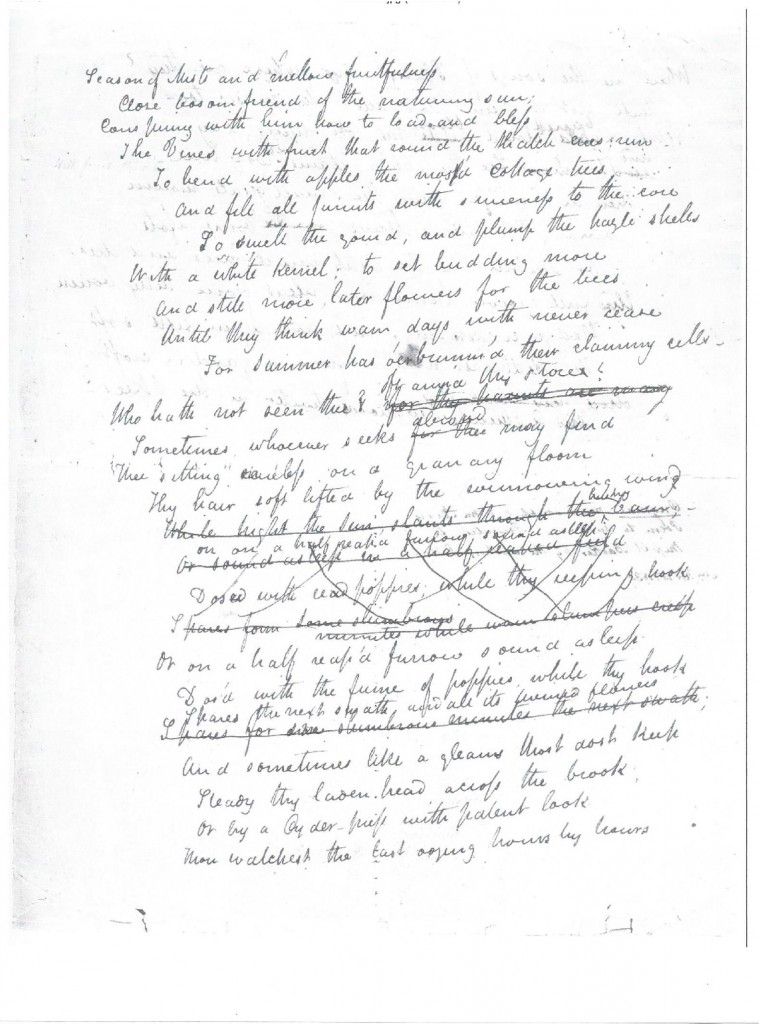
SPACE
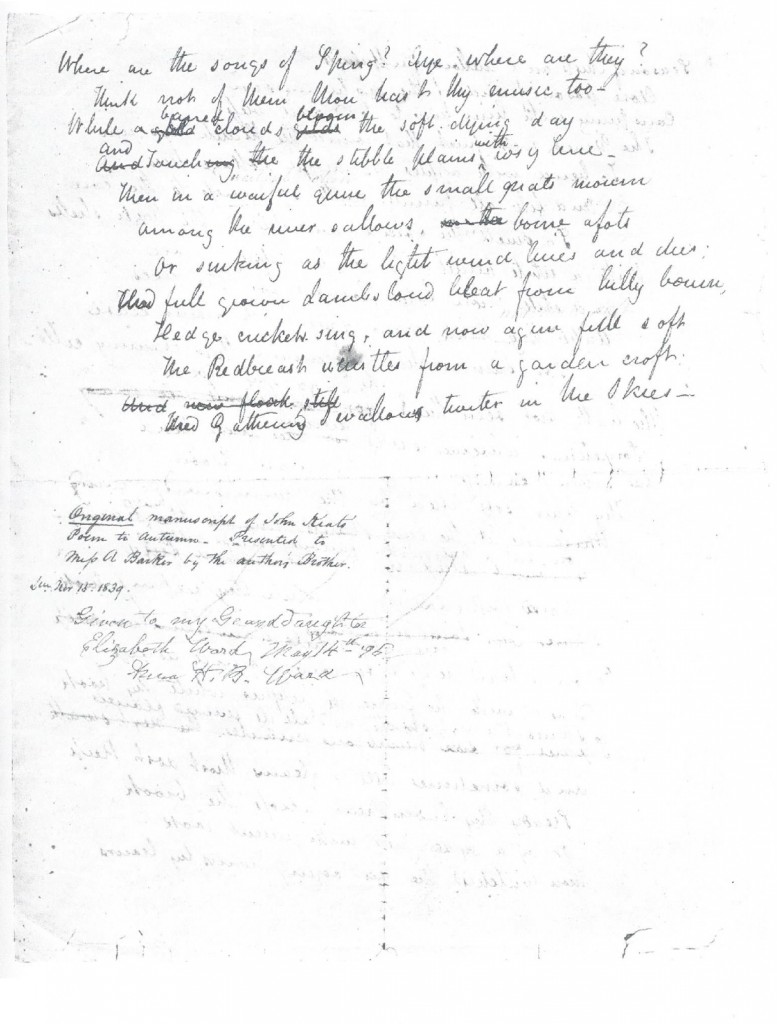
In a sonnet Shakespearean both in form and Negative Capability, Keats reminds us of this ode’s unspoken but ever-present parallel: “Four seasons fill the measure of the year;/ There are four seasons in the mind of man.” Following man’s “autumn, when” he is content “to look/ On mists in idleness—to let fair things/ Pass by unheeded as a threshold brook,” the sonnet ends with a human/seasonal memento mori: “He has his winter, too, of pale misfeature,/ Or else he would forego his mortal nature.” In the ode, autumn’s “full-grown lambs” look back to spring, while the post-harvest sounds (rising from bleat, to sing, to whistle, to twitter) and the gathering swallows herald the approach of winter. But winter is merely hinted at; even the migration of the swallows is left implicit, as, gathering, they “twitter in the skies.” The poet’s own thoughts of mortality remain liminal; they never intrude. Autumn has her own music to the end.
Each season, each stage of life, has a distinct “identity and beauty which man can appreciate by disengaging his own ego” (David Perkins, The Quest for Permanence, 294). We rightly think of this ego-less, autumnal poem as essentially “objective,” and the Nightingale Ode as highly “subjective,” rounding as it does from the opening “My heart aches,” through the flight of imagination, to the rondural tolling back to the poet’s “sole self.” The last word of John Keats’s final ode may be “skies,” but “To Autumn,” moving through its own diurnal and annual cycle, is, even as its music recedes from earth, an earth-centered poem—as, in the end, is the “Ode to a Nightingale.” As Helen Vendler has noted in the “Conclusion” to her book-length study of the Odes, “Keats is unsparingly faithful to his own sense of the artifice necessary to creation; but he remains as well the greatest celebrant, in English, of the natural base without which no art and no identity would be possible” (The Odes of John Keats, 294).
In “To Autumn,” art and identity, art and the natural base, coalesce. Here, at last, beauty and truth seem as distinct yet indistinguishable as the leaf, blossom, and bole that comprise Yeats’s “chestnut-tree, great-rooted blossomer.” Nor (to cite Yeats’s final image of unity of being in “Among School Children”) “can we know the dancer from the dance,” the performer from the work of art, the Eliotic “poet” from his “particular medium.” Keats was never more identifiaby Keats than in “To Autumn,” where he is an absent presence, a poet of “no Identity.” For here, his “sense of Beauty over[coming] every other consideration,” he is “continually… filling some other body,” having “stepped/ Into a sort of oneness” with Nature, as in Coleridge’s unrealized nuptial vision of “Identity” as alienated man’s “re-union with Nature.” Though terrestrial Keats could only half-identify with the eternal song of that light-wingéd Dryad of the trees, the immortal Nightingale, he may fully identify with the gathering swallows that twitter in the skies. Yet even here there is a poignant distinction. Keats knows that, unlike them, he will not be part of a migratory let alone eternal recurrence. Even when “no Identity” weds Identity, death is the great divorcer forever. In echoing Keats’s final cadences and imagery, Wallace Stevens, in the final lines of “Sunday Morning,” made Keats’s elegiac music less subtle but more explicit: “the quail/ Whistle about us their spontaneous cries;/ Sweet berries ripen” in the wild,
And, in the isolation of the sky,
At evening, casual flocks of pigeons make
Ambiguous undulations as they sink,
Downward to darkness, on extended wings.
[SPACE]
Coda

This essay on “Keats and Identity” began with Leon Wieseltier’s observation that “Only one in possession of an identity would understand why one would wish to be rid of it.” His latest “Washington Diarist” column (The New Republic, 9 December 2013), titled “Binocular,” is a moving meditation on things more important than politics, enough so for me to incorporate it as a coda. The essay is set in Montecito, an “impossibly lovely” town between the Santa Ynez Mountains and the sea. “Perched on a large rock facing the ocean,” and “saturated in the noontime light,” Wieseltier escapes all sense of “care.” Momentarily “rid of” his identity, he experiences an “exciting sensation of insubstantiality” a Keatsian dissolution of the self. A thin woman arrives and spreads a towel. He notes her “beautiful gray hair,” her “pleasant Californian smile,” and watches as “she lifted her face toward the light. I could see her sighing with gladness to be in the sun.” Sharing with her what Wallace Stevens, in “Sunday Morning,” has his female persona “find in comforts of the sun,” he enjoys “a moment of solidarity with her.”
But then she reaches into her bag and removes two well-thumbed and “desperate” books: The Art of Healing Cancer and A Cancer Battle Plan Sourcebook. Wieseltier “can hardly describe the shock to my mind. The entire scene was transfigured by my discovery of the woman’s circumstances… The light shone no longer upon beauty but upon tragedy. She was gaunt, she was a fugitive, and she was dying; and I felt pity. The magnificence of creation was suddenly dwarfed by this thin, doomed creature.” I read these words earlier this morning with a shock of recognition, since, in thinking and writing about the “Ode to a Nightingale,” and the magnificent final stanzas of “To Autumn” and “Sunday Morning,” I had been haunted by memories of my first girlfriend, now, like Wieseltier’s woman on the beach, battling cancer.
When that woman on the beach at Montecito got up, stepped toward the ocean, and “stood there staring at the glittering world,” Wieseltier was reminded of the Irish custom of “taking the last look.” He had first heard of the custom, he tells us, in a Mellon lecture, later incorporated into a book, a “subtle and affecting study of the poetry of dying.” The lectures and the book, Last Looks, Last Books (2011) are by Helen Vendler, whom Wieseltier goes on to quote. “How,” Vendler asked, “can…a poem do justice to both the looming presence of death and the unabated vitality of spirit?” What is required, she says, is a “binocular style”: a variation on Coleridge’s “bi-polar unity,” though, unlike Coleridge and like Keats, Wallace Stevens and the four other modern American poets Vendler discusses had to confront death without religious consolation. During his initial idyll in the sun, Wieseltier had escaped from all troubles: “beyond caring,” but “with none of the cruelty the phrase implies.” Though he realized that it was “a temporary escape,” he really “wished,” during that momentary respite, “to be emptied” of the world’s pains and troubles. Wieseltier’s short-lived illusion of “escaping” the cares of the world, as well as Helen Vendler’s exemplification of the need, in a poetry of dying, to register “both the looming presence of death and the unabated vitality of spirit,” illuminate not only “The Ode to a Nightingale” and “To Autumn,” but many of Keats’s other poems, as well as his life and letters.
They also illuminate the state of mind of my ex-girlfriend, with whom I’m still in touch and to whom I just wrote a letter. Yesterday she completed phase one of her chemo treatments, and on the day I’m writing, she is having her first stem-cell infusion. According to a mutual friend, the process is painful, with more pain to come. He knows. Both have multiple myeloma, a horrible, incurable form of cancer. My friend has survived for an astonishing nine years, a tribute to excellent medical care and to the retention of some of the extraordinary physical strength he displayed when we were getting in fights back in the Bronx. In contrast, my girlfriend was always delicate. Yet, while under no illusions, she’s facing her situation with courage, “unabated vitality of spirit,” and the same humor I remember from all those years ago, when we were in love in the Bronx. Her vision is binocular, her face lifted to the sunlight, even as she is acutely aware of the looming presence of death. With her example in mind, as well as that of Keats as a writer and as a man, I’m trying, in Vendler’s phrase, to “do justice to both.”
Wieseltier ends his meditation on mutability by noting that, as a caring person in his everyday life, “I was binocular.” At the beach, during that care-obliterating moment of noontime sun and glittering ocean, “I became monocular.” But “care” and the “identity” he wished to be “rid of” suddenly re-emerged in his Keatsian epiphany: “the entire scene was instantly transfigured by my discovery of the woman’s circumstances.” For one’s “Identity” is “made” through the medium of the heart, “and how is the Heart to become this Medium but in a world of Circumstances?” Wieseltier concludes, as Keats had, fusing restored identity with an empathetic identification with others. “When I left the beach I was binocular again. An old and frail friend was waiting for me to pick him up for lunch, and he needed help getting in and out of the car.”
[SPACE]

John Keats (1795-1821): A Biographical Endnote

The richness and meteoric improvement of his poetry, the intellectual brilliance and human warmth of his letters, and the tragic brevity of his life have combined to make John Keats the best loved of all poets writing in English. In one astonishing year, 1819, Keats wrote two great medieval romances (“The Eve of St. Agnes” and “La Belle Dame sans Merci”) and two powerful epic fragments (Hyperion and The Fall of Hyperion) fusing Greek myth with an inquiry into human suffering. But for most readers, the height of Keats’s achievement is the remarkable 1819 sequence of odes, culminating in the flawless ode “To Autumn,” composed in September. It was preceded by the odes written that spring: “Ode to Psyche,” “Ode to a Nightingale,” “Ode on a Grecian Urn,” and “Ode on Melancholy”: beautifully constructed poems employing language of almost unparalleled richness to explore the tensions between imaginative creativity and human mutability, between vision and reality.
It is hard to separate the poetry from the young man who wrote it. Conceiving of life heroically, not as a vale of tears but as a “vale of Soul-making,” in which an identity is forged through suffering, Keats responded courageously to his own ordeals. Both his parents died when he was a boy, his mother of the same tuberculosis that would later claim both Keats’s younger brother, Tom, whom he lovingly nursed to the end, and, three years later, Keats himself. During the months he spent in Italy wasting away from consumption, Keats alternated between hope for posthumous fame and understandable bitterness at the mortal illness that had thwarted his poetic ambitions and separated him from the young woman he loved, Fanny Brawne. (Jane Campion’s 2009 film Bright Star is based on Keats’s love letters to Fanny.)
“I think I shall be among the English poets after my death,” he said in 1818; but during the hopelessness of what he called his “posthumous life” in Italy, Keats directed that the only words to appear on his tombstone should be, “Here lies one whose name was writ in water.” He died, after much agony, on February 23, 1821. He was twenty-five, and had been unable to write for almost a year. The extraordinary swiftness and sureness of Keats’s development as a thinker and poet, a record of rapid growth unparalleled in literary history, intensify the sense of tragic waste all readers feel at the cutting short of so remarkable a genius. But what, in the few short years given him, he did accomplish, combined with the lovable personality revealed in his letters, ensure that John Keats will always have a prominent and especially cherished place “among the English poets.”
[SPACE]
Works Cited
Coleridge, Samuel Taylor. Biographia Literaria, ed. James Engell and W. Jackson Bate. 2 vols. Princeton UP, 1983.
_____________________. Collected Letters of Samuel Taylor Coleridge, ed. E. L. Griggs. 6 vols. Oxford: Clarendon P, 1956-71.
de Man, Paul. Introduction to John Keats: Selected Poetry. New American Library, 1966.
Dickstein, Morris. Keats and His Poetry. U of Chicago Press, 1971.
Eliot, T. S. “Tradition and the Individual Talent” (pp. 3-11), in Eliot, Selected Essays. New Edition. Harcourt, Brace & World, 1964. pp. 3-11.
Harvey, Samantha. Transatlantic Transcendentalism: Coleridge, Emerson, and Nature. Edinburgh UP, 2013.
Hazlitt, William, Essay on the Principles of Human Action: The Natural Disinterestedness of the Human Mind (1805); “On Personal Character” (1821); both in The Complete Works of William Hazlitt, ed. P. P Howe. 21 vols. Dent, 1930-34.
Keane, Patrick J. Emerson, Romanticism, and Intuitive Reason. U of Missouri P, 2007.
Keats, John. The Letters of John Keats, 2 vols., ed. Hyder E. Rollins. Harvard UP, 1958.
________. The Poems of John Keats, ed. Miriam Allott. Longman-Norton, 1970.
________. The Keats Circle, ed. Hyder E. Rollins. 2nd edn. 2 vols. Harvard UP, 1965.
Locke, John. “Identity and Diversity,” in vol. 1 (pp. 439-70), of An Essay Concerning Human Understanding, 2 vols. Collated and annotated by Alexander Campbell Fraser. Dover, 1959.
Perkins, David. The Quest for Permanence. Harvard UP, 1959.
Roe, Nicholas. John Keats: A New Life. Yale UP, 2013.
Shakespeare, William. A Midsummer Night’s Dream, Hamlet, and King Lear; in The Riverside Shakespeare. Houghton Mifflin, 1974.
Sperry, Stuart. Keats the Poet. Princeton UP, 1973.
Stevens, Wallace. Wallace Stevens: Selected Poems, ed. John N. Serio. Knopf, 2009.
Stillinger, Jack. “Appendix” (pp. 111-12) to Twentieth Century Views of Keats’s Odes, ed. Stillinger. Prentice-Hall, 1968.
Valéry, Paul. “Concerning Adonis,” in The Art of Poetry. Pantheon, 1958.
Vendler, Helen. The Odes of John Keats. The Belknap Press of Harvard University Press, 1983.
____________. Last Looks, Last Books: Stevens, Plath, Lowell, Bishop, Merrill. Princeton, 2011.
Ward, Aileen. John Keats: The Making of a Poet. Viking Press, 1963.
Weiselter, Leon. Against Identity. W. Drenttel, 1996.
____________. “Binocular.” The New Republic. 9 December 2013.
Wordsworth, William. Wordsworth: The Poems. 2 vols., ed. John O. Hayden. Yale UP, 1981.
Yeats, W. B. W. B. Yeats: The Poems, ed. Daniel Albright. Everyman’s Library, 1992.
— Patrick J. Keane
Patrick J. Keane is Professor Emeritus of Le Moyne College. Though he has written on a wide range of topics, his areas of special interest have been 19th and 20th-century poetry in the Romantic tradition; Irish literature and history; the interactions of literature with philosophic, religious, and political thinking; the impact of Nietzsche on certain 20th century writers; and, most recently, Transatlantic studies, exploring the influence of German Idealist philosophy and British Romanticism on American writers. His books include William Butler Yeats: Contemporary Studies in Literature (1973), A Wild Civility: Interactions in the Poetry and Thought of Robert Graves (1980), Yeats’s Interactions with Tradition(1987), Terrible Beauty: Yeats, Joyce, Ireland and the Myth of the Devouring Female (1988), Coleridge’s Submerged Politics (1994), Emerson, Romanticism, and Intuitive Reason: The Transatlantic “Light of All Our Day” (2003), andEmily Dickinson’s Approving God: Divine Design and the Problem of Suffering(2007).
Contact: patrickjkeane@old.numerocinqmagazine.com









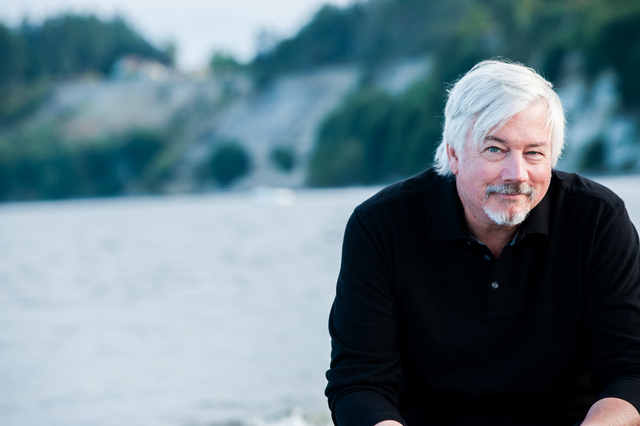











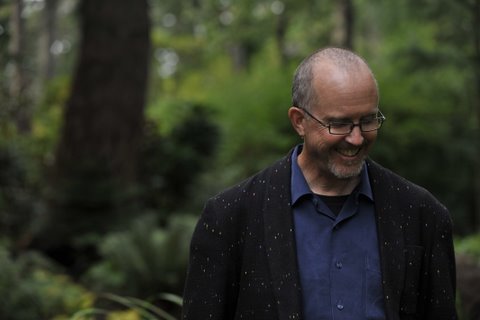

 Natural Attraction, watercolor on paper, 45″x 60″ (2012)
Natural Attraction, watercolor on paper, 45″x 60″ (2012)





